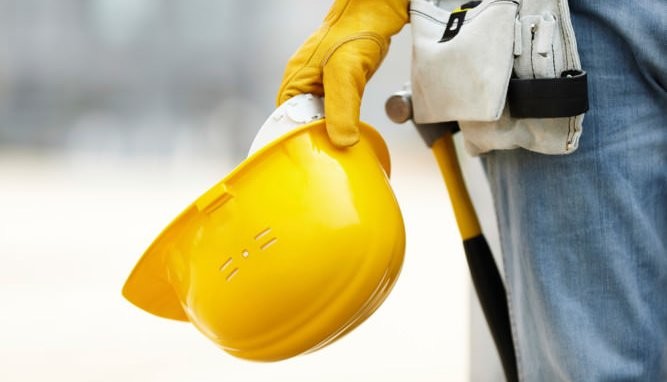Commercial construction companies are the ones that build the places where we work, reside, and shop. But, these days, their role extends beyond just erecting buildings. A commercial construction company bears significant social responsibilities to consider the impact of their work on the environment, the community, and the people who work for them. Below are some of the statistics that highlight this:
- A recent Dodge Data & Analytics study found that construction and demolition waste accounted for roughly 60% of municipal solid waste in the United States in 2020. That’s a lot of trash!
- As per the Occupational Safety and Health Administration survey, nearly 21.1% of all workplace fatalities in 2019 occurred in the construction industry, highlighting the critical need for stringent safety measures.
That’s why construction firms are readily implementing sustainable practices to minimize their ecological footprint with techniques such as using recycled materials and adopting energy-efficient technologies.
Let’s learn more about how trusted construction companies can do good things and how to overcome potential challenges!
3 Top Social Responsibilities Of Trustworthy Construction Firms
1. Environmental Responsibility: Together Build A Better Future
The earth’s resources are precious, and construction dramatically impacts them. An eco-conscious commercial construction company completely understands this; therefore, they consider environmental factors while working. Have a look in detail:
a) Sustainable Materials
Trustworthy construction Firms actively seek out recycled or recyclable materials whenever possible. Did you know the U.S.A. Environmental Protection Agency estimates that in 2021, approximately 68.7% of building & demolition debris was redirected from landfills? This reduces our reliance on virgin resources and lowers the burden on landfills.
b) Waste Reduction
The reliable company’s project manager plans their work carefully to minimize construction waste by using pre-fabricated components, ordering accurate amounts of materials, and exploring ways to reuse or recycle leftover materials.
c) LEED Certification
Many trustworthy companies hold the certification of LEED (Leadership in Energy and Environmental Design) to show their sustainable practices commitment. This is a widely recognized certification of the green building rating system.
These are some of the top environmental responsibilities of trustworthy commercial general contractors through which you can reduce the ecological impact by prioritizing these practices and contributing to a more sustainable future.
2. Community Responsibilities: Build Trust With Your Neighbors
Construction projects can disrupt the daily lives of those who live and work nearby. Therefore, it’s important to understand the impact their work has on the community and take steps to minimize disruption:
a) Respectful Communication
Ensure to inform the community about project timelines, potential noise levels, and traffic disruptions. Open communication builds trust and helps residents prepare for any inconvenience.
b) Minimizing Noise Pollution
Construction noise is a major source of stress and health problems. Commercial builders take steps to mitigate this by using noise-reduction techniques like enclosing work areas and scheduling noisy activities for specific times.
c) Supporting Local Businesses
Whenever possible, use source materials and services from local vendors. This keeps money circulating within the community and reduces transportation emissions associated with long-distance deliveries.
d) Community Engagement
Some companies go further by participating in community events or supporting local charities related to construction education or skills development.
These actions demonstrate that trustworthy construction companies value the communities where they work and strive to be good neighbors.
3. Safety Responsibility
Here’s how trustworthy commercial construction companies prioritize the safety and well-being:
a) Community Safety Assurance
By placing visible signs in construction zones, the local community is informed about potential dangers and redirected safely. In this way, you can prevent accidental exposure to dangerous substances and safeguard the local community’s well-being.
b) Focus On Employee Safety
- Equipping employees with necessary safety gear like helmets, goggles, and others ensures they are adequately protected while performing their duties.
- Regular training on safety practices and emergency procedures equips employees with the knowledge and skills needed to identify and mitigate workplace hazards. It also prepares them to handle emergencies effectively, minimizing the severity of potential accidents.
- Providing employees with comprehensive insurance coverage guarantees they receive financial support in case of work-related injuries or accidents.
Challenges Faced In Fulfilling Their Social Responsibilities
While the commitment to social responsibility is strong, construction companies are businesses whose primary goal is “PROFIT.” Therefore, these companies do face challenges such as:
- Higher Upfront Costs
Sustainable materials and energy-efficient technologies can be more expensive than traditional options.
- Time Investment
Implementing new social responsibility practices requires additional planning, training, and workflow adjustments, impacting project timelines.
- Coordination Issue With Local Community
Negative past experiences with construction projects or doubt towards corporate entities hinder the development of positive relationships with the local community.
Potential Solutions And Strategies To Overcome Challenges
While social responsibility might present some initial hurdles!! But, you can effectively address them through strategic planning and collaboration:
- Strength in Partnerships
Building solid relationships with other companies in the construction industry, material suppliers, and even government agencies can open a wealth of solutions.
- Long-Term Planning Pays Off
Taking a long-term view of costs is crucial. While sustainable building materials or energy-efficient systems might have a higher upfront price tag, consider the lifecycle benefits:
- Lesser operating costs due to reduced energy consumption.
- Potential tax credits or incentives for sustainable construction practices.
- Increased building value and marketability due to sustainability features.
- Go For Transparent Communication
Trustworthy commercial construction companies can develop trust and credibility with the local community by offering precise details regarding project plans and timelines. This involves actively engaging with community feedback and taking ownership of any past mistakes or shortcomings.
Choose a trustworthy commercial contractor to ensure your project meets your needs and contributes to a brighter future.
Wrapping Up
Commercial construction companies can become powerful forces for positive change by prioritizing social responsibility. These above acts automatically contribute to a healthier environment, stronger communities, and a more empowered workforce.

Eddie has been a resident of Albuquerque his entire life.
After he graduated from high school, Eddie joined the Plumbers & Pipefitters Union where he obtained his Journeyman Plumber and Journeyman Gas Certifications. He then worked in the commercial plumbing industry for 7 years until he and his father decided to go into business together and started Dub-L-EE, LLC.
In the last 7 years Eddie has obtained his GA02, GA03, and MM98 certifications allowing Dub-L-EE to fully utilize Eddie Sr. and Eddie Jr.’s expertise in the construction industry.

